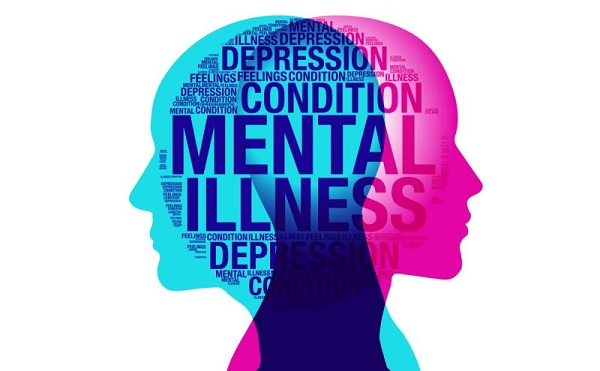The Mirror's Health , Lifestyle and Fashion

Mental illness inflation, future shock
According to Dr Badu, recent media reports on deviant behaviour and behavioural addictions by the youth attested to the fact that all was not well.
Advertisement
A news report in the Daily Graphic of August 16, 2022 and the Ghana News Agency (GNA) online of August 15, 2022 carried statements made by Dr Badu at the launch of the Ghana Psychology Week celebration in Accra.
“Scaling up psychology and its practice in the post-pandemic future: reaching out to the vulnerable,” was the theme of the event.
“There is certainly mental health inflation in Ghana. The youth, the middle-aged, the near-retiree, the aged and all of us continue to face one mental health-related challenge or another,’’ Dr Badu said.
“Haven’t we heard of behavioural addiction taking over our tertiary institutions, especially students engaging grossly in pornographic addiction, betting and gambling and getting addicted to excessive use of social media?
“What about other issues such as rape and rioting by students? Indeed, one can say there is a problem.
"Imagine the mental health of security agents or personnel in the security services; if it is compromised, what happens to us?
“Are we not sure that perhaps the mental health challenges some of our drivers face could be one of the reasons that road crashes are happening?” he questioned.
The Ghana Psychological Association, according to Dr Badu, would prioritise research into some of the issues in the country for the understanding of the psychological underpinnings of the problems and proffer solutions.
It is notable that, according to the GNA report, Dr Badu attributed the mental health problems to stress, anxiety and loss of jobs due to the COVID-19 pandemic and high level of unemployment in the country.
What Dr Badu reportedly mentioned as causes of increased mental illness in Ghana today are already known.
Post-modern psychology, sociology and anthropology have shed light on some of the mental, psychological and spiritual health problems that confront humanity presently.
I remember names such as Alvin Toffler, an Anthropologist, on Future Shock; Rev. Elizabeth Clare Prophet, a Metaphysician, on The Coming Revolution in Higher Consciousness; and Maharishi Yogi Mahesh, Mathematician, Physicist and Metaphysician, on Science of Creative Intelligence.
I suggest that the Ghana Psychological Association should, besides the known causes of mental illness, widen its research efforts to include preventive and curative solutions proffered by the experts mentioned earlier.
The advent of the Third Industrial Revolution with the Information Revolution and the Information Society that is being created have been subjects of investigations by futurists, psychologists, sociologists and anthropologists.
Alvin Toffler had, for example, studied the Information Revolution created by fantastic feats in Information and Communications Technology (ICT) research and inventions.
For the first time, ICT inventions have made it possible for man to communicate with another man by means of the personal computer and the mobile phone – very quickly and across long distances.
The Information Revolution has also made it easy to create and access information and knowledge quickly and at little or no cost.
The First and Second Industrial Revolutions came with their notable psychological effects.
The Third Industrial Revolution has also created its own side effects.
In his study of the side effects of the Information Revolution, Alvin Toffler wrote about how Americans reacted or responded to what he described as the “information overload”.
Toffler observed that in attempts by Americans to cope with sudden increases in information flow, they resorted to some escape routes.
The routes included deliberate lying, pathological lies and confused or warped sense of judgement.
Toffler defined Future Shock as “a certain psychological state of individuals and the entire societies. It is a personal perception of too much change in too short period of time”.
He noted that “the biggest issues facing future generations would be our ability to adapt to the accelerating pace of change”.
"Peoples, institutions and civilisations in the world who failed to keep abreast of the new information flow will quickly decline,” Alvin Toffler predicted.
He had authored several books on the side effects of the Information Revolution and made projections, many of which have been fulfilled.
His books include Future Shock (1970), The Third Wave (1980) and Powershift: Knowledge, Power and Violence at the Edge of the 21st Century (1990).
Should Future Shock, also known as Culture Shock, be the concern of psychologists?
Future Shock is an anthropological, sociological, metaphysical, as well as a psychological problem.
The World Health Organisation has described health as a healthy soul in a healthy mind in a healthy body.
What affects the mind adversely can cause problems for the body and for the soul of a person.
So, some psychologists have been concerned and have observed and investigated Future Shock and have spoken and written about it.
For example, Dr Bruce Wilson (PhD.) of Mental Care in Australia wrote an article, “Back to Future Shock”, published in The Psychologist online.
He noted that “the psychologically overwhelmed are marked by confusion, anxiety, instability and withdrawal into apathy”.
“Today, anxiety disorders are the most common mental illnesses in the United States – affecting some 40 million adults,” he added.
On those who deny Future Shock, Dr Wilson quoted Toffler by stating that “the person in denial is not able to accept change and believe that all evidence of change is incomplete and superficial”.
“The deniers set themselves up for personal catastrophe because they ultimately will be forced to adapt to the denied change which may be in the form of a massive life crisis,” he said.
In his article, Re-reading Future Shock, 50 Years On, published online, Andrew Curry wrote that “change is a process by which the future invades our lives”.
“It is a roaring current, one which is so powerful today, overturns institutions, shift our values and shrivels our roots.’’
Future Shock, according to Toffler and Andrew Curry, “is no longer a distant potential danger, but a sickness from which increasingly large numbers already suffered”.
“Millions of ordinary psychologically normal people will face an abrupt collision with the future.
“There is a racing rate of change that makes reality seem sometimes like a Kaleidoscope run wide.”
Use of the mobile phone and the personal computer is now worldwide.
Since its inception, all nations of the world have changed over and have adopted the computer and the mobile phone as tools for achieving quick social and economic development.
Ghana has, since the early 1990s, started to progressively digitise, digitalise and computerise the economy to achieve quick development.
As of now, almost all aspects of the economy have been computerised to enable Ghana to transform from a lower middle-income country into an upper middle-income one.
Sectors of the economy, including commerce, industry, banking, executive, legislative and judicial arms of government, health, transport, housing and others have been, or are in the process of being, computerised.
Are all these computerising processes not accompanied by rapid changes and side effects that are likely to affect the mental health of Ghanaians as it has happened elsewhere in the world?
Email: [email protected]





